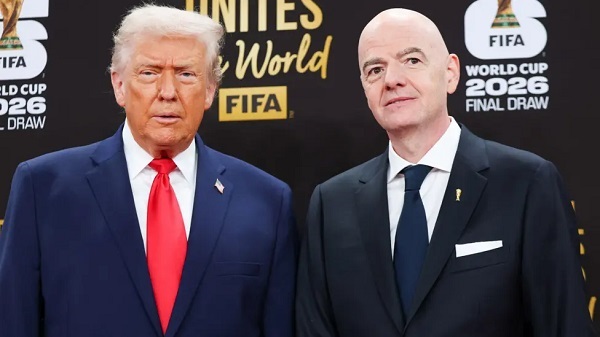Nigerian Army: Taking Asymmetric Security Challenge By The Horns

When Nigeria’s Chief of Army Staff (COAS), Lieutenant General Tukur Yusufu Buratai pensively declared in his speech at the ongoing summit on security in Abuja that “Insurgency remains one difficult form of asymmetric warfare.
Nations must explore new frontiers of knowledge to understand this world threat,” it struck my heart thunderously. His words vibrated and resonated a thousand times to a humane mind on the same page with his feelings.
For those familiar with military ethos and culture, an average soldier is somewhat perceived almost indisputably as a soul immune and hardened against human compassion. But listening to Gen. Buratai’s emotional voice that morning, shuddered my heart continuously.
I instantly decoded that the Army boss, a rare breed professional soldier, disciplinarian, workaholic, a monk to core administrative values and a portrait of success in all military endeavours is not just a bundle of intelligence, but has more hidden and endearing treasures.
I now knew, like his foot soldiers that Gen. Buratai knows and feels the pain of humanity solemnly. He has proven in different ways as the untainted emblem of Nigerian soldiers today.
It is gleaned in the reality of his soldiers in the trenches, as wild beasts against terrorists and in the midst of civilians; they court evergreen fraternity.
I was more impressed as he got his audience transfixed on their seats in rapt attention, as participants nodded heads repeatedly in unanimous confirmation of the points he articulately amplified on the imperative of the security summit.
So, the best brains on security around the world, who converged at the Nigerian Army Resource Centre (NARC), Federal Capital Territory, (FCT), Abuja, Nigeria for this seminar, like bees on honey had no regrets.
The pilot himself, Gen. Buratai justified the devotion of their precious time, resources and energies. They sighted prospects of a refreshed knowledge on counter-terrorism operations in the seminar they could not sacrifice for any other engagement.
Surely, expressions on the face of participants had conjured one inaudible message! Gen. Buratai’s speech got them thinking deeply on the fate of humanity in a world violently chained by terrorism and how security agents could permanently liberate trapped souls everywhere.
Then the essence of the seminar descended, thumping hearts like cascading waterfalls. I digested the speeches at the event and realized,
it was carefully designed to brainstorm on the dynamism of character, content and modus operandi of the asymmetrical security challenges confronting Nigeria, Africa and other assailed nations of the world.
It infinitely arrested the minds of participants to the point of metaphysical realm.
Sponsored by the Nigerian Army led by the Chief of Army Staff (COAS), Lieutenant General Tukur Yusufu Buratai, the eagerness of these security experts and heads across the world was aptly and irresistibly crystallized in the seminar topic as “Managing Asymmetric Security Challenges in the 21st Century.”
Like the COAS observed in his wordy and charming address to these esteemed men and women of valour, the termination of the cold war, otherwise, christened 21st century wars, the globe has been pushed to the cusp of the reprehensible acts of terrorism, insurgencies, and other dimensions of armed local conflicts within nations and among countries.
These have inevitably set the military on rescue missions. And in Nigeria, the nuances are aplenty.
The summit topic, itself, a very attractive bait, as divulged by Brig. Gen. SK Usman, Director Army Public Relations (DAPR), combed 150 security participants within Nigerian Armed forces and 16 friendly nations.
Of note is the inclusion of 94 security participants from the Armed Forces of Nigeria, comprising, the Army, Nigerian Airforce and the Nigerian Navy;
the Nigerian Police and other Security Agencies. The roll call of participating countries includes the indubitable USA, Niger, Pakistan, United Kingdom, Bangladesh, Cameroon, India, Mali, Niger and , Pakistan and the list goes.
These are countries with shared experiences on terrorism and still under the spell of terrorism or its allied manifestations.
Ostensibly sponged by the pains or agonies inflicted on humanity and the burden imposed on governments by these extremists and fanatics, the Nigerian Army Chief says,
these terror-oriented sects are senselessly enraged to the level of seeking “…to delegitimize governments and obtain popular support by coercive means if necessary, or exploiting state weakness or grievances.
This may occur by deflecting, nullifying or sapping the strengths of government through subversion, sabotage, terrorism or substitution.”
Therefore, the summit is crafted to enliven and broaden their knowledge on five catchy areas namely; “ build capacity towards a better understanding and managing of asymmetric security challenges amongst the participants;
draw lessons from the challenges and peculiarities common to all participating countries in the management of asymmetric security challenges and share knowledge on global asymmetric security challenges.
It is also to create better understanding of cultural diversity amongst the participants and lastly, strengthen relationships and encourage interaction amongst the participants.”
No reason among the big-five is less weighty or relevant. And it was then it dawned on me for the umpteenth time that Gen. Buratai is really excellent in the trenches, like in administrative leadership of the Nigerian Army.
I said to myself, so Gen. Buratai’s gun is a lethal punch of Boko Haram Terrorists, in the same degree, his brain oozes with the best of planning, what world renowned army veteran, master strategist and tactician, Gen. Mao Tse lectured as indispensable ingredient a commander needs in warfare.
The Nigerian Army Chief prepares his troops psychologically with secured welfare through prompt and timely payments of legitimate remunerations.
He also arms them with the requisite knowledge and weaponry to invade the battlefield in harvest of victories, as typified by this summit. Trailing the warfare trends, one would say!
If we owe President Muhammadu Buhari and the Armed Forces of Nigeria a debt of gratitude for the decimation, defeat and now, in the last phase of extinguishing Boko Haram terrorists in the Northeast and the entire Nigeria, Gen. Buratai, has played the ombudsman role of the counter-insurgency operations strategically and effectively.
Nigeria, like the foreign countries participating in the summit know they still have to channel energies and time to halt the menace of terrorism.
The Army boss is conscious that we require a military which must constantly update its skills, particularly knowledge, to dislodge armed dissidents of extremism and some weird ideologies.
And synergy, much as partnership in this venture is very necessary. If Nigeria groans under terrorism, both America with all its sophistry or United Kingdom’s inoffensive posture scream loudly by its trauma and we need to commend our Armed Forces for defeating terrorism and making us proud.
We may differ in language and culture, but we are united on the score of a common enemy of humanity. We unselectively bear the pains, agonies and devastations, atrociously animated on us by these satanic extremists.
It means the entire world has resolved to collectively bury terrorism; pursue terrorists to their graves and this seminar brightens this hope in tenfold.
Accordingly, when my heart leaped in excitement, it was because Gen. Buratai, with an ever willing and concerned President Buhari, raised and funded a platform, properly packaged to keep this promise alive in knowledge and exertion.
In the seriousness of the summit, I see a commitment and an addictive zeal by Gen. Buratai in keeping faith with the directives of his Commander-in-Chief, President Buhari to defeat terrorism.
So, he has rightly identified this warfare as an accomplished task and a war that must be won, not only for the sake of Nigeria, but he knows it is a moment that will signify the return of peace to the nations of Africa troubled by terrorism.
Gen. Buratai has made a covenant to Nigerians and knows it is a duty that must be fulfilled. He wakes up every day, thinking of the best way he can discharge and fulfill this sacred obligations to the state,
as encapsulated in his oath of office and allegiance as COAS in protecting and defending all forms of aggressions against the territorial integrity and sovereignty of Nigeria.
Thus, he succinctly extrapolates; “This forum is important as it will accord our nations the opportunity to rethink and re-strategize on the best approach from shared experiences to confront the challenges posed by Asymmetric Warfare in the 21st Century, as exemplified by insurgency, terrorism and other strategies used by adversaries to undermine constituted authorities.”
By the testimony in the actuality of this summit, I can gladly say , the Nigerian Army Resource Centre, which has developed itself into an intellectual hub for the military and as a military research Centre in Africa has touched my sour nerve pleasantly. It has eclipsed my pains and sorrows.
When I wrote months back about the internal and external eulogies on Nigerian Army in pioneering the defeat of terrorism in Africa, many Nigerians thought it was some kind of hype.
But this seminar and the caliber of security personnel in attendance; the countries involved, confirms my earlier assertion that the Nigerian Army has amazed the world, which is celebrating it multiply.
America has a history of terrorism which is nearly a century old and it is yet to overcome it, even as at yesterday. Its presence in this summit trumpets the immutable fact that “an inconsequential” Nigerian Army or Nigeria has a lot of experience to teach other nations of the world,
with its defeat of Boko Haram terrorists in record time. This feat has remained a source of hope, nourishment and admiration across the continent and the world.
Kolawole PhD, a University lecturer wrote this article from Keffi, Nasarawa State.










